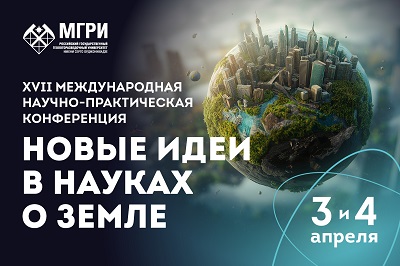Transformation of approaches to mineral resource auditing for augmentation of Russia’s wealth in the current political situation
https://doi.org/10.32454/0016-7762-2023-65-6-79-90
Abstract
Background. The mineral resource base is a strategic component of Russia’s economic security and a critical tool for strengthening the country’s position in the international arena. At the same time, economic turmoil and geopolitical tensions negatively affect the quality of resource auditing in the oil and gas and other extractive industries of the Russian Federation. This have an effect on the investment attractiveness of exploration projects, which are highly important for the continuous reproduction of the country’s mineral resource base.
Aim and objectives. In order to consider the potential of mineral resource auditing for augmentation of Russia’s wealth, the following objectives were undertaken: 1) to analyze the structure and state of audit methods in Russian extractive industries; 2) to study the prospects and possibilities of applying international experience in auditing Russian extractive industries; 3) to apply new tools and approaches to optimize auditing activities in the domestic practice.
Materials and methods. Both domestic and foreign research publications were reviewed, along with the reports of the Ministry of Natural Resources and the Environment of the Russian Federation and the Federal Subsoil Resources Management Agency, analytical materials and audit guides by CAAF, INTOSAI, and AFROSAI-E McKinsey. A set of general scientific and special methods Y were used: forecasting methods to assess the state and prospects of financing geological exploration in the Russian Federation; methods of comparative analysis and synthesis, induction and deduction to study the international experience of auditing in the extractive industry.
Results. It is proposed to attract financial resources at various stages of geological exploration through the creation of special-purpose direct investment funds. Attention is also paid to such methods as streaming and acquisition of fixed profit margins from production activities in exchange for an advance payment, which can be applied at later stages of geological exploration.
Conclusion. In order to attract investments for geological exploration of subsoil resources, Russian companies should apply new tools and approaches, as well as international best practices. In combination, this will facilitate the process of attracting funds alternative to budgetary resources, thereby diversifying the methods of financial support, and will increase the investment attractiveness of the Russian geological industry.
Keywords
About the Authors
D. A. PavlovskiyRussian Federation
Danek A. Pavlovskiy — Postgraduate student of the Department of Production and Financial Management.
23, Miklukho-Maklaya str., Moscow 117997, tel.: +7 (926) 206-06-05
Competing Interests:
the authors declare no conflict of interest
J. V. Zvorykina
Russian Federation
Julia V. Zvorykina — Dr. of Sci. (Econ.), Vice-Rector for Development and Innovation, Professor of the Department of Production and Financial Management.
23, Miklukho-Maklaya str., Moscow 117997, tel.: +7 (495) 255-15-10 (ext. 20-03)
Competing Interests:
the authors declare no conflict of interest
References
1. Aldasoro Y., Doerr S., Gambacorta L., Garratt R., Ku Wilkens P. Tokenization. BIS Bulletin. April 2023 No. 72, pp. 2-3, https://www.bis.org/publ/bisbull72.pdf.
2. Audit aspects for the extractive industries. Guide for auditors. Pretoria, South Africa: AFROSAI-E, 2019. 18 p. (In Russian).
3. Audit in the mining industry. Guide for auditors. Vienna, Austria: INTOSAI, 2010. P. 35—43 (In Russian). https://www.intosaicbc.org/download/increase-use-and-impact-of-audit-reports-eng/
4. Audit in the oil and gas industry. A Practical Guide to Oil and Gas Revenue Audits and Financial Assurance for Remediation: Ottawa, Canada: CCAF-FCVI, 2016. P. 23—69 (In Russian). https://www.caaf-fcar.ca/images/pdfs/practice-guides/Practice-Guide-toAuditing-Oil-and-Gas-Revenues-and-FinancialAssurances-for-Site-Remediation.pdf
5. Bank for International Settlements (BIS). The Future Monetary System. Annual Economic Report 2022, June, Chapter III (In Russian).
6. Dudikov M.V. Subsoil use audit as a tool for implementing environmental requirements. 2012. No. 5. P. 8—12 (In Russian).
7. Zadera S., Tikhonov S. Russia will refuse foreign audits of mineral resources // Rossiyskaya Gazeta newspaper. 2023 (In Russian). https://rg.ru/2023/02/08/uglubilis-v-nedra.html
8. Carstens A. Innovation and the future of the monetary system, keynote speech at the Monetary Authority of Singapore, 22 February 2023 (In Russian). https://www.bis.org/speeches/sp230222.htm.
9. Tretyakov A.V. Geological and economic audit in Russia: features and development prospects. 2022 (In Russian). https://andreytretyakov.ru/publications/Geological-economic-audit-in-Russia/
10. Economic importance of natural resources. Key points for reformers in Eastern Europe, the Caucasus and Central Asia. Paris: OECD, 2011. 47 p. (In Russian).
Review
For citations:
Pavlovskiy D.A., Zvorykina J.V. Transformation of approaches to mineral resource auditing for augmentation of Russia’s wealth in the current political situation. Proceedings of higher educational establishments. Geology and Exploration. 2023;(6):79-90. (In Russ.) https://doi.org/10.32454/0016-7762-2023-65-6-79-90









































